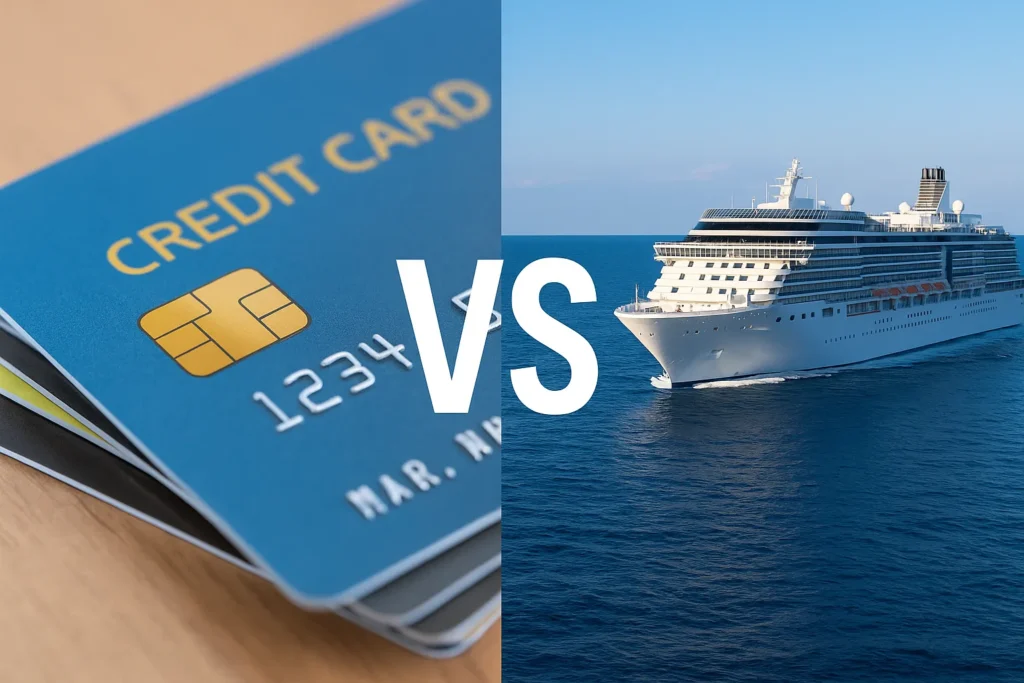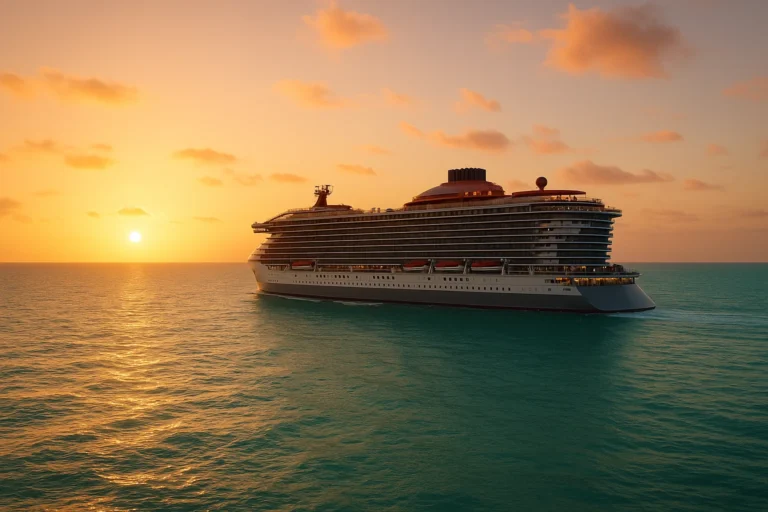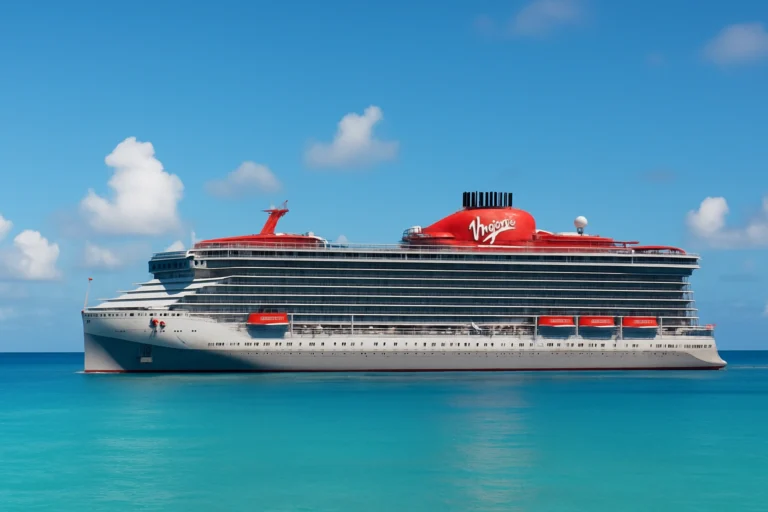Credit Card Travel Insurance vs. Cruise Policies: What You Need to Know
💳 Credit Card Travel Insurance vs. Cruise Policies
Planning a cruise vacation and wondering about insurance? Many travelers assume their existing credit card offers sufficient travel protection, or they might automatically opt for the policy offered by their cruise line. However, understanding the crucial differences between **credit card travel insurance** and dedicated **cruise line insurance policies** is essential to ensure you’re adequately covered for every unforeseen event. Let’s delve into the key distinctions to help you make an informed decision for your next voyage.
💳 Credit Card Travel Insurance: Convenience with Caveats
Many premium credit cards (especially those with annual fees, like certain travel rewards cards or luxury cards) offer a range of travel insurance benefits when you use the card to book your trip’s travel components, such as flights, hotels, or the cruise itself. These benefits are often seen as a convenient perk, but their coverage is frequently less comprehensive than standalone policies.
Overview and Common Benefits
Typical travel insurance benefits offered by credit cards may include:
- ✔ **Trip Cancellation and Interruption:** Reimburses non-refundable expenses if your trip is canceled or cut short due to covered reasons (e.g., illness, severe weather, natural disaster).
- ✔ **Lost or Delayed Baggage:** Provides reimbursement for essential items if your luggage is delayed, or for the value of lost or stolen bags.
- ✔ **Travel Accident Insurance:** Offers compensation in the event of accidental death or dismemberment while traveling.
- ✔ **Rental Car Coverage:** Often provides secondary collision damage waiver (CDW) or loss damage waiver (LDW) coverage.
⚠️ Key Limitations of Credit Card Travel Insurance
While seemingly convenient, credit card benefits often come with significant limitations that travelers should be aware of:
- ✖ **Secondary Coverage:** Many credit card policies are “secondary,” meaning they only kick in after any other primary insurance (like your personal health insurance or homeowner’s insurance) has paid out, or if you have no other coverage.
- ✖ **Limited or No Medical Coverage:** This is a major gap for cruises. Most credit card policies offer very limited, if any, coverage for emergency medical treatment or hospitalization abroad, which can be astronomically expensive on a cruise ship or in a foreign port. They almost never cover pre-existing conditions.
- ✖ **Restrictions on Trip Length and Destination:** Coverage may have strict limits on the maximum duration of your trip or exclude certain destinations.
- ✖ **Low Coverage Limits:** The maximum payout limits for various benefits (e.g., trip cancellation, lost baggage) are often significantly lower than those offered by dedicated travel insurance policies.
- ✖ **Lack of “Cancel For Any Reason” (CFAR):** This highly flexible (though more expensive) option is almost never available through credit card insurance.
It’s crucial to thoroughly read your credit card’s guide to benefits or contact your card issuer directly to understand exactly what is and isn’t covered, and under what conditions.
🛳️ Cruise Line Insurance Policies: Tailored for Your Voyage
Most major cruise lines offer their own optional travel insurance policies, which can be purchased directly during the booking process or shortly thereafter. These policies are specifically designed to cover risks unique to cruising and often provide more comprehensive protection than typical credit card benefits.
What They Typically Offer
Cruise line insurance policies are generally more robust and tailored to the cruising experience:
- ✔ **Comprehensive Trip Cancellation and Interruption:** Covers non-refundable cruise fares and often airfare/hotel if booked through the cruise line, for a wider range of covered reasons.
- ✔ **Emergency Medical Expenses:** Provides significant coverage for medical treatment onboard the ship and in foreign ports, including doctor’s visits, hospital stays, and prescription drugs.
- ✔ **Emergency Medical Evacuation:** Crucially, covers the often-exorbitant costs of emergency medical evacuation from the ship or a remote port to the nearest adequate medical facility or back home.
- ✔ **Baggage Protection:** Covers lost, stolen, or damaged luggage, and often provides funds for essential items if luggage is delayed.
- ✔ **Missed Connections & Port Delays:** May offer coverage if you miss your cruise departure due to covered flight delays or other transportation issues, or if ports of call are missed.
- ✔ **”Cancel For Any Reason” (CFAR) Option:** Some higher-tier cruise line policies (or third-party plans) may offer an optional CFAR benefit, allowing you to cancel your trip for almost any reason (with partial reimbursement) if purchased within a specific timeframe.
⚠️ Considerations for Cruise Line Policies
While generally comprehensive, there are a few points to consider when evaluating cruise line insurance:
- ✖ **Cost:** These policies can sometimes be more expensive than comparable independent third-party travel insurance plans.
- ✖ **Underwritten by Third Parties:** Often, the cruise line’s “policy” is actually underwritten by a third-party insurance company, which may also offer a similar, or even better, plan directly to consumers.
- ✖ **Less Flexibility:** You might have less flexibility in customizing the coverage limits or specific benefits compared to dedicated independent travel insurance providers.
- ✖ **Provider Loyalty:** In rare cases, some travelers express concern that the cruise line’s own policy might create a conflict of interest during a claim, though this is not a widespread issue.
📊 Side-by-Side Comparison
To give you a clearer picture, here’s a direct comparison of typical benefits offered by credit card insurance versus cruise line policies:
| Feature | Credit Card Insurance (Typical) | Cruise Line Policy (Typical) |
|---|---|---|
| **Trip Cancellation** | Limited coverage, often secondary | Comprehensive coverage, primary |
| **Emergency Medical Coverage** | Minimal or None (often secondary) | Extensive (primary) |
| **Emergency Evacuation** | Rarely included or very low limits | Typically included with high limits |
| **Cost** | Included with card (if using for booking) | Additional fee (purchased separately) |
| **Pre-Existing Conditions** | Almost never covered | Often covered with certain waivers (if purchased early) |
| **Flexibility/Customization** | Limited; fixed benefits | More adaptable; options for higher limits |
📌 Final Verdict: Making the Right Insurance Choice for Your Cruise
While credit card travel insurance offers convenient and often cost-effective coverage for certain basic aspects of your trip, it typically **does not provide the comprehensive protection** truly needed for a cruise, especially concerning medical emergencies and evacuations.
**Cruise line policies, or robust third-party travel insurance plans**, while potentially incurring an additional cost, generally offer broader and more tailored coverage for the unique risks associated with cruising. These policies are designed to cover the high costs of medical care onboard, emergency evacuations, and cruise-specific disruptions like missed connections or port changes.
📂 Explore More in These Categories
Compare Cruise Lines – MSC vs Royal, Carnival vs Norwegian & More
To ensure complete peace of mind during your voyage, it’s recommended to:
- **Review your credit card benefits** carefully to understand what they cover and, more importantly, what they *don’t*.
- **Consider a dedicated cruise line policy or, even better, a comprehensive third-party travel insurance plan** that specifically addresses medical emergencies, evacuations, and trip protection tailored to your cruise. Many independent providers offer policies that can be more flexible and sometimes more affordable than cruise line options, while still offering robust coverage.
Assessing your individual needs, the cost of your cruise, and potential risks (e.g., pre-existing conditions, remote itineraries) will help you make the most informed decision.
❓ FAQ – Frequently Asked Questions
🔹 Is travel insurance mandatory for cruises?
While not always legally mandatory (unless a specific country on your itinerary requires it for visa purposes), travel insurance is **highly recommended** for cruises due to the high cost of onboard medical care, potential for emergency evacuations, and the non-refundable nature of cruise bookings.
🔹 Can I rely solely on my regular health insurance for medical emergencies on a cruise?
Most standard health insurance policies (especially U.S.-based plans) offer **limited or no coverage once you are outside your home country or in international waters**. They also typically do not cover emergency medical evacuation, which can cost tens or even hundreds of thousands of dollars. Always check with your health insurance provider before your trip.
🔹 What is a “Cancel For Any Reason” (CFAR) policy?
CFAR is an optional add-on to some travel insurance policies that allows you to cancel your trip for almost **any reason** and receive a partial reimbursement (typically 50-75% of your non-refundable trip costs). It’s more expensive and usually must be purchased within a short window (e.g., 10-21 days) of your initial trip deposit.
🔹 When is the best time to buy cruise insurance?
It’s generally best to purchase travel insurance **as soon as you make your initial deposit** for your cruise. This often makes you eligible for benefits like pre-existing condition waivers and CFAR coverage (if offered and purchased within specific timeframes).
✍️ What’s your experience with cruise insurance?
🗣️ Share your insights below! Have you relied on credit card benefits, purchased a cruise line policy, or opted for a third-party plan? What lessons did you learn, or what advice would you offer to fellow cruisers?









